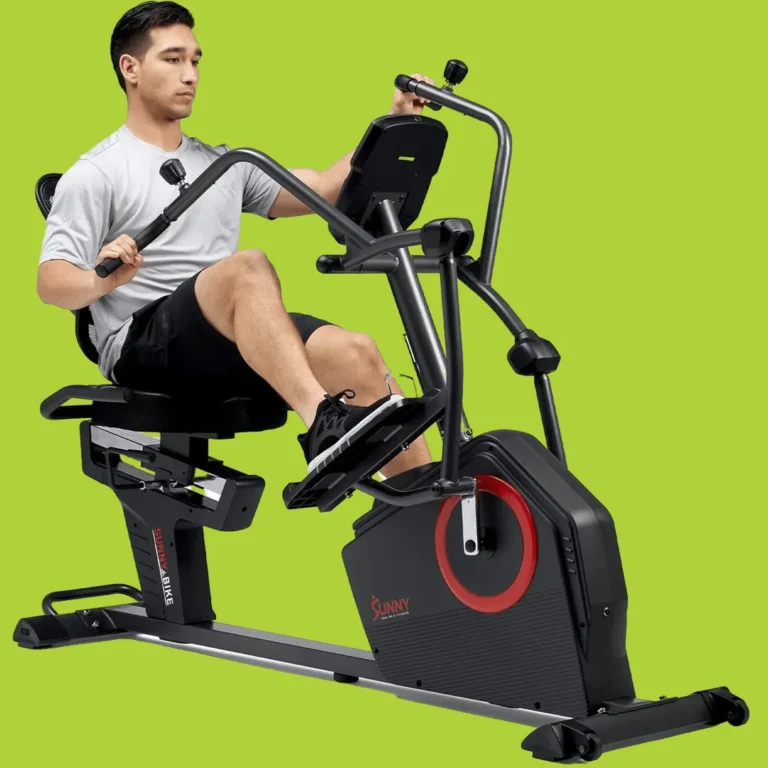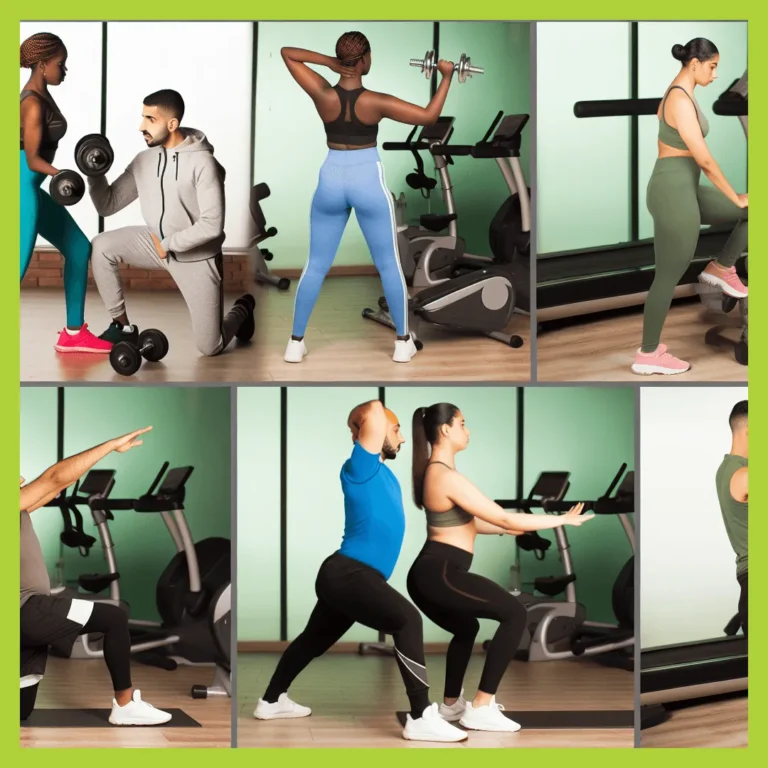Health-Related Fitness 101
In the bustling rhythm of modern life, where convenience often trumps quality and quick fixes are favored over foundational solutions, the core concepts of health-related fitness emerge as a beacon of enduring wellness.
This realm goes beyond mere physical prowess or aesthetic goals; it delves into the essential components that constitute our overall health and well-being.
Health-Related Fitness 101 serves as your comprehensive guide to understanding these vital elements—strength, endurance, flexibility, and body composition—and how they collectively forge a resilient, vibrant physique capable of withstanding the demands of daily life.
Embarking on this journey unveils not just the mechanics but also the remarkable benefits awaiting those who integrate these principles into their lifestyle.
From enhanced disease prevention to improved mental health and longevity, the rewards extend far beyond superficial gains.
As we explore these topics with professional insight and evidence-based information, you’ll discover how adopting a holistic approach to fitness can transform your life in profound ways.
Welcome to a new chapter in personal health empowerment—one that’s grounded in knowledge, discipline, and a deep understanding of what it truly means to be fit.
Table of Contents Health-Related Fitness 101
Understand core concepts of fitness
To achieve optimal fitness, it is crucial to understand the core concepts that underpin a well-rounded fitness routine.
Core concepts encompass the components of fitness and their associated benefits.
These components include cardiovascular endurance, muscular strength and endurance, flexibility, and body composition.
By focusing on these areas, you can enhance your overall fitness level and improve your physical performance.
Cardiovascular endurance is the ability of the heart, lungs, and blood vessels to deliver oxygen and nutrients to the muscles during sustained exercise.
Developing this component through activities such as running, swimming, or cycling can improve your stamina and reduce the risk of heart disease.
Muscular strength and endurance, on the other hand, involve the ability of your muscles to exert force and sustain repeated contractions respectively.
Incorporating resistance training exercises like weightlifting or bodyweight exercises can improve muscle tone and function.
Flexibility, often overlooked, refers to the range of motion in your joints and muscles.
Engaging in activities such as yoga or stretching exercises can enhance flexibility and prevent injuries.
Lastly, body composition refers to the proportion of fat, muscle, and other tissues in your body.
By maintaining a healthy balance through proper nutrition and regular exercise, you can improve your overall physique and reduce the risk of chronic diseases.
Understanding these core concepts of fitness empowers you to tailor your fitness routine and make informed choices to achieve your health and wellness goals.
Learn about key components
As you continue to explore the realm of health-related fitness, it is essential to delve deeper into the key components that contribute to a well-rounded fitness routine.
These components encompass cardiovascular endurance, muscular strength and endurance, flexibility, and body composition.
By understanding these components and their associated benefits, you can tailor your fitness regimen to meet your specific goals.
Cardiovascular endurance, for instance, plays a vital role in improving your overall stamina and reducing the risk of heart disease.
Engaging in activities such as running, swimming, or cycling can enhance your heart, lung, and blood vessel function, allowing them to effectively deliver oxygen and nutrients to your muscles during sustained exercise.
Additionally, focusing on muscular strength and endurance through resistance training exercises like weightlifting or bodyweight exercises can not only improve your physical performance but also enhance your overall muscle function and stability.
Lastly, incorporating flexibility exercises into your routine can help increase your range of motion, prevent injuries, and improve your posture.
By recognizing and incorporating these key components into your fitness journey, you can optimize your overall health and well-being.
Discover the benefits of exercise
When incorporating exercise into your routine, it is important to recognize the multitude of benefits it brings to your overall well-being.
Regular physical activity has been proven to enhance both your physical and mental health.
From a physical standpoint, exercise strengthens your muscles and improves your core stability, leading to better posture and reduced risk of injury.
It also aids in weight management by burning calories and boosting your metabolism.
Additionally, engaging in exercise promotes cardiovascular health by improving your heart’s efficiency and reducing the risk of chronic conditions such as heart disease and high blood pressure.
On a mental level, exercise releases endorphins, which are natural mood boosters, helping to reduce stress, anxiety, and symptoms of depression.
It also enhances cognitive function, including improved focus, memory, and overall brain health.
By incorporating exercise into your lifestyle, you can reap these numerous benefits, allowing you to lead a healthier and more fulfilling life.
Boost your physical well-being
To boost your physical well-being, it is essential to understand the core concepts and components of health-related fitness.
First and foremost, it is important to engage in regular aerobic exercise to improve your cardiovascular endurance.
Activities such as running, swimming, or cycling not only increase your heart rate but also strengthen your heart and lungs, promoting overall cardiovascular health.
Additionally, incorporating strength training exercises into your routine is crucial to enhance muscular strength and endurance.
By targeting different muscle groups through resistance training, you can improve your physical performance and reduce the risk of injuries.
Furthermore, flexibility exercises are vital for maintaining a full range of motion in your joints and muscles.
Stretching exercises, yoga, or Pilates can help increase your flexibility, improve posture, and prevent muscle imbalances.
Lastly, don’t overlook the importance of incorporating balance exercises into your fitness regimen.
These exercises not only improve stability but also help prevent falls, especially as you age.
By focusing on these core components of health-related fitness, you can experience a multitude of benefits.
Regular exercise not only enhances your physical capabilities but also boosts your energy levels, improves sleep quality, and promotes a sense of overall well-being.
It can also contribute to weight management, reduce the risk of chronic diseases, and improve cognitive function.
Incorporating exercise and prioritizing your physical well-being is an investment in yourself and your long-term health.
By understanding and implementing these core concepts, you can take proactive steps towards achieving optimal physical fitness and enjoying the many benefits it brings.
Strengthen your cardiovascular health
To reap the numerous benefits of a strong cardiovascular system, it is imperative to prioritize the health of your heart and blood vessels.
Engaging in regular aerobic activities is key to achieving this.
By engaging in activities such as brisk walking, jogging, or cycling, you can elevate your heart rate and improve the efficiency of your cardiovascular system.
This, in turn, enhances the oxygen and nutrient supply to your muscles and organs, promoting better overall physical performance.
Additionally, regular aerobic exercise can help lower blood pressure, reduce the risk of heart disease, and improve cholesterol levels.
By making cardiovascular health a priority in your fitness routine, you are taking a crucial step towards achieving optimal physical well-being.
Enhance muscular strength and endurance
Core Concepts: Enhancing muscular strength and endurance forms a crucial component of a comprehensive fitness routine.
This aspect focuses on building and maintaining strong muscles that can endure demanding physical activities and resist fatigue.
By targeting specific muscle groups through resistance training exercises, you can effectively increase muscular strength and endurance, enabling you to perform everyday tasks with greater ease and efficiency.
Components: To enhance muscular strength and endurance, incorporate compound exercises that engage multiple muscle groups simultaneously.
Examples include squats, lunges, deadlifts, and bench presses.
These exercises challenge your muscles by imposing resistance, leading to microscopic tears in the muscle fibers.
As your body repairs these tears, the muscles become stronger and more resilient.
Incorporating progressive overload, gradually increasing the weights or resistance used, is key to continually challenging the muscles and promoting growth.
Benefits: Improving muscular strength and endurance offers a multitude of benefits.
Firstly, it enhances your physical performance in various activities, whether it’s lifting heavy objects, participating in sports, or simply maintaining good posture.
Strong muscles also provide better joint stability, reducing the risk of injuries.
Furthermore, increased muscle mass can boost your metabolism, aiding in weight management and promoting a leaner physique.
Lastly, improving muscular strength and endurance can contribute to overall functional fitness and independence, ensuring you can perform daily tasks with ease and confidence.
Incorporating exercises that target muscular strength and endurance into your fitness routine not only enhances your physical capabilities but also contributes to your overall well-being.
By consistently challenging and strengthening your muscles, you can enjoy improved performance, reduced risk of injuries, and greater functional independence in your daily life.
Improve flexibility and balance
When it comes to improving flexibility and balance, it is important to understand the core concepts and components that contribute to these aspects of your fitness.
Flexibility refers to the range of motion in your joints and muscles, allowing for improved mobility and decreased risk of injury.
Balance, on the other hand, refers to your ability to maintain stability and control over your body’s position.
By incorporating exercises such as stretching, yoga, and Pilates into your fitness routine, you can enhance your flexibility and balance.
The benefits of improved flexibility and balance are numerous.
Not only does it help in performing daily activities with ease, but it also plays a crucial role in maintaining good posture, preventing muscle imbalances, and reducing the risk of falls and injuries.
Elevate overall quality of life
To elevate your overall quality of life, it is essential to prioritize and maintain your health and well-being.
By incorporating regular exercise, proper nutrition, and stress management techniques into your lifestyle, you can experience a multitude of benefits.
Physically, engaging in regular physical activity helps to improve cardiovascular health, strengthen muscles and bones, and maintain a healthy weight.
Mentally, exercise releases endorphins, reducing stress levels, improving mood, and promoting better sleep.
Furthermore, a balanced and nutritious diet provides the necessary fuel for your body to function optimally, boosting energy levels and supporting overall vitality.
Taking care of your physical and mental well-being not only enhances your physical fitness but also contributes to increased productivity, improved mental clarity, and a greater sense of overall happiness in your daily life.
In conclusion, as you work towards improving your health-related fitness, remember to prioritize a well-rounded approach that includes physical activity, healthy nutrition, and proper rest and recovery.
It can be tempting to focus solely on one aspect, but incorporating all three will lead to the best results.
Also, remember to consult with a healthcare professional before starting any new exercise routine to ensure it is safe and appropriate for your individual needs.
Keep up the great work and continue to prioritize your overall health and well-being.
FAQ
What are the key components of health-related fitness and why are they important?
In order to achieve optimal health, you must focus on five key components of health-related fitness: cardiovascular endurance, muscular strength, muscular endurance, flexibility, and body composition.
Each component plays a crucial role in improving overall physical health and well-being.
Cardiovascular endurance keeps your heart healthy, muscular strength and endurance help you perform daily tasks with ease, flexibility reduces the risk of injury, and maintaining a healthy body composition is essential for overall health.
By incorporating these components into your fitness routine, you can improve your quality of life and promote longevity.
How can individuals assess their own level of health-related fitness?
To assess your own level of health-related fitness, you can start by evaluating your physical activity, nutrition, and overall well-being.
Keep track of your exercise routine, monitor your diet, and pay attention to how you feel both mentally and physically.
Consider taking fitness tests like measuring your cardiovascular endurance, strength, flexibility, and body composition.
Consulting with a healthcare professional or fitness trainer can also provide valuable insights.
By consistently monitoring and evaluating these factors, you can gauge your current level of health-related fitness and make informed decisions to improve it.
What are some common exercises or activities that can improve health-related fitness?
To improve health-related fitness, you can try activities like running, cycling, swimming, or weightlifting.
These exercises help boost cardiovascular endurance, strength, and flexibility.
Incorporating activities like yoga or Pilates can also improve balance and core stability.
Remember to choose activities that you enjoy and vary your routine to target different muscle groups for overall fitness benefits.
Stay consistent and gradually increase intensity to see progress in your health and fitness levels.
How does nutrition play a role in health-related fitness?
Nutrition plays a critical role in health-related fitness by providing the essential nutrients needed for optimal physical performance and overall well-being.
Proper nutrition fuels your body, supports muscle growth and repair, enhances recovery after workouts, and helps maintain a healthy weight.
By consuming a balanced diet rich in vitamins, minerals, proteins, and carbohydrates, you can boost your energy levels, improve endurance, and reduce the risk of chronic diseases.
Making conscious choices about what you eat can significantly impact your fitness goals and overall health.
Remember, you are what you eat!
What are some potential benefits of improving health-related fitness levels?
By improving your health-related fitness levels, you can experience benefits such as increased energy levels, improved mood, better overall health, reduced risk of chronic diseases, enhanced physical performance, and increased longevity.
Regular exercise and proper nutrition can help you achieve these benefits and lead to a healthier and more fulfilling life.
Keep pushing yourself to improve your fitness levels and enjoy the positive impact it can have on your well-being.







